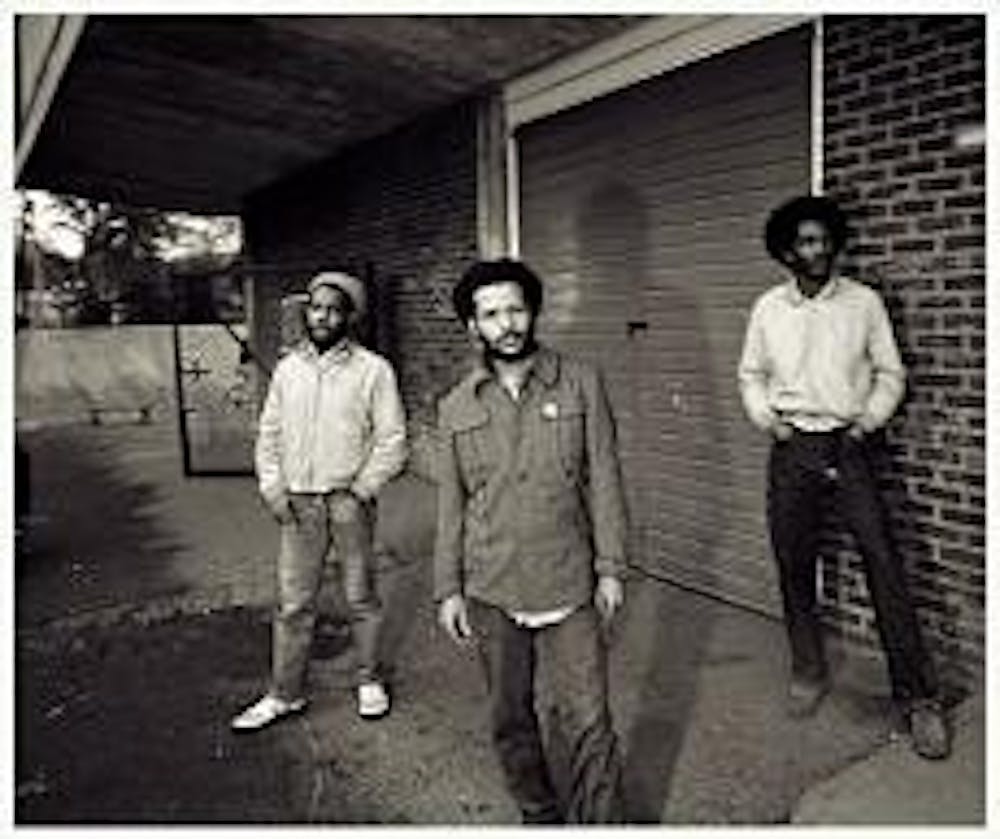By the late '70s, The Ramones in New York and The Sex Pistols in London helped propel punk into the limelight and the pages of Rolling Stone. A reaction to the failure of rock 'n' roll elitists to connect with disaffected youth - like Pink Floyd and Led Zeppelin's 15-minute guitar solos amid tired jam sessions-turned-Top 40 EPs - punk was a much needed grounding force for the bloated egos of the era's musicians.
In the early '80s, the gap widened further. Punk was perceived as pass? as a more conservative president took office and employed his Reaganomics, giving some Americans, especially independent businesses, the feeling that they were falling through the cracks. Watching their version of the American dream crash and burn in the face of corporate America and armed with a new uncertain future of their own, metropolitan teens from L.A. to D.C. decided not to take the lame duck position. Instead, they paired their dejection with a human face and united voice.
Punk in the '80s continued the tradition of banging out refreshingly raw lyrics and cacophonous melodies but became a more highly evolved form of self-expression by infusing punk's mean sound with meaningful undercurrents. Here, gray areas are tackled with harsh, black-and-white codes of ethics or flagrant nihilism. The more conviction and passion with which the band played, the more respected it became. The sound traveled from west to east and back, its infectious vitality bleeding north and south as well, revitalizing punk for at least the next five years.
Despite having much creative energy and resolve, the scene began to feel the toll of burning its candle at both ends. Hardcore punk entered its waning period in 1985 when, in an effort to curb increasing incidents of violence at shows, the D.C. hardcore community entered Revolution Summer and toned down the hard, fast musical aesthetic it helped define in 1980. Bands began to focus on more introspective, melodious and emotional music, giving rise to such bands as Rites of Spring, Gray Matter, Embrace and Fugazi, and setting the tone for a new chapter in hardcore: emocore.
Hardcore highlights:
D.C.'s role
The most influential D.C. band was Bad Brains. The band's black musicians and punk-reggae concoction provided stark contrast to the mostly white, suburban, teenage bands emerging at the time. Formed in 1979, the band released various cassettes, toured and earned a dedicated following in D.C. and abroad, even though the band's first full-length debut, "Rock for Light," was not released until 1983. Bad Brains' second release in 1986, "I Against I," would be the final album before the group disbanded in 1989. Bad Brains reunited in the '90s, under the new name Soul Brains, with limited success.
Minor Threat and Ian MacKaye
While some would argue that other D.C. band Minor Threat is the most influential, it was only after bandmate Ian MacKaye expressed admiration for Bad Brains that they adopted MacKaye and Minor Threat as their prot?g?es in 1980.
Nevertheless, Minor Threat matched its mentor's idol status. The band lasted only three years before disbanding but managed to produce enough material to inspire the Straight Edge movement, a socio-political motion hinging on personal responsibility and freedom from drugs, alcohol and promiscuity. Minor Threat also developed a complimentary minimalist aesthetic, compiling a 26-track discography in 1988 and founding Dischord Records, which remains a vanguard of "do-it-yourself" culture and independent artists to this day.
From this development came a bevy of subsequent artists, mostly friends of MacKaye and fostered by Dischord Records. While Dischord continues to release great albums, none rival the incendiary EPs of the '80s. Dischord's 1987 compilation, "Flex Your Head," is an excellent documentation of the D.C. '80s hardcore scene. Other notable East Coast bands include Boston's Gang Green and SS Decontrol and New York's Agnostic Front.
Black Flag
Black Flag stood as a similar bastion on the West Coast. Formed in L.A., the band's 1978 debut, "Nervous Breakdown," also launched guitarist Greg Ginn and bassist Chuck Dukowski's label, SST Records. The band's most memorable and definitive album is also its first full-length EP, "Damaged," recorded and released in 1981 with Henry Rollins on vocals. Other influential West Coast bands include The Meat Puppets, Fear, The Minutemen, San Francisco's Adolescents and MDC (Millions of Dead Cops), a band that employed even more political extremism in its music than fellow Bay Area punks The Dead Kennedys.





